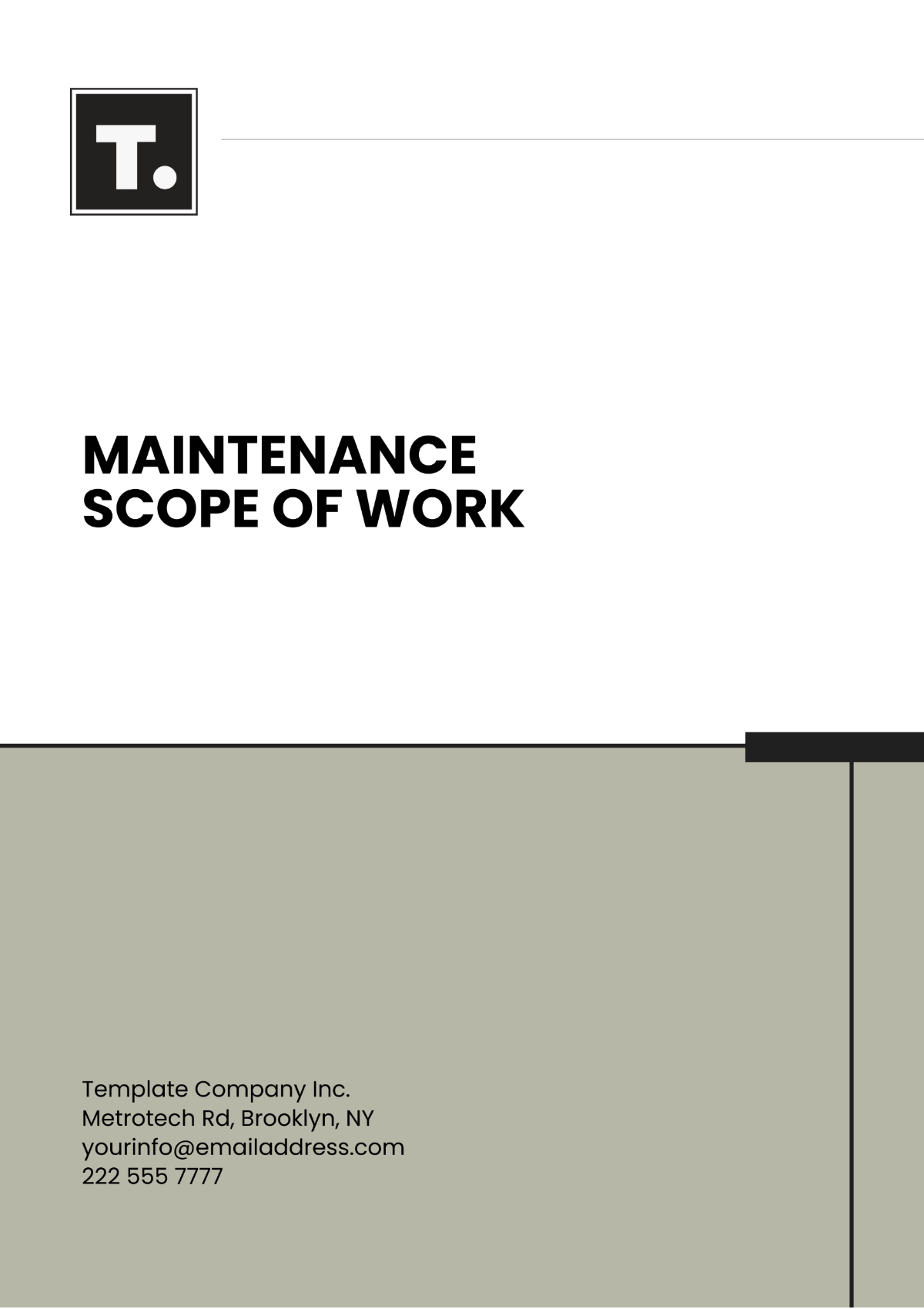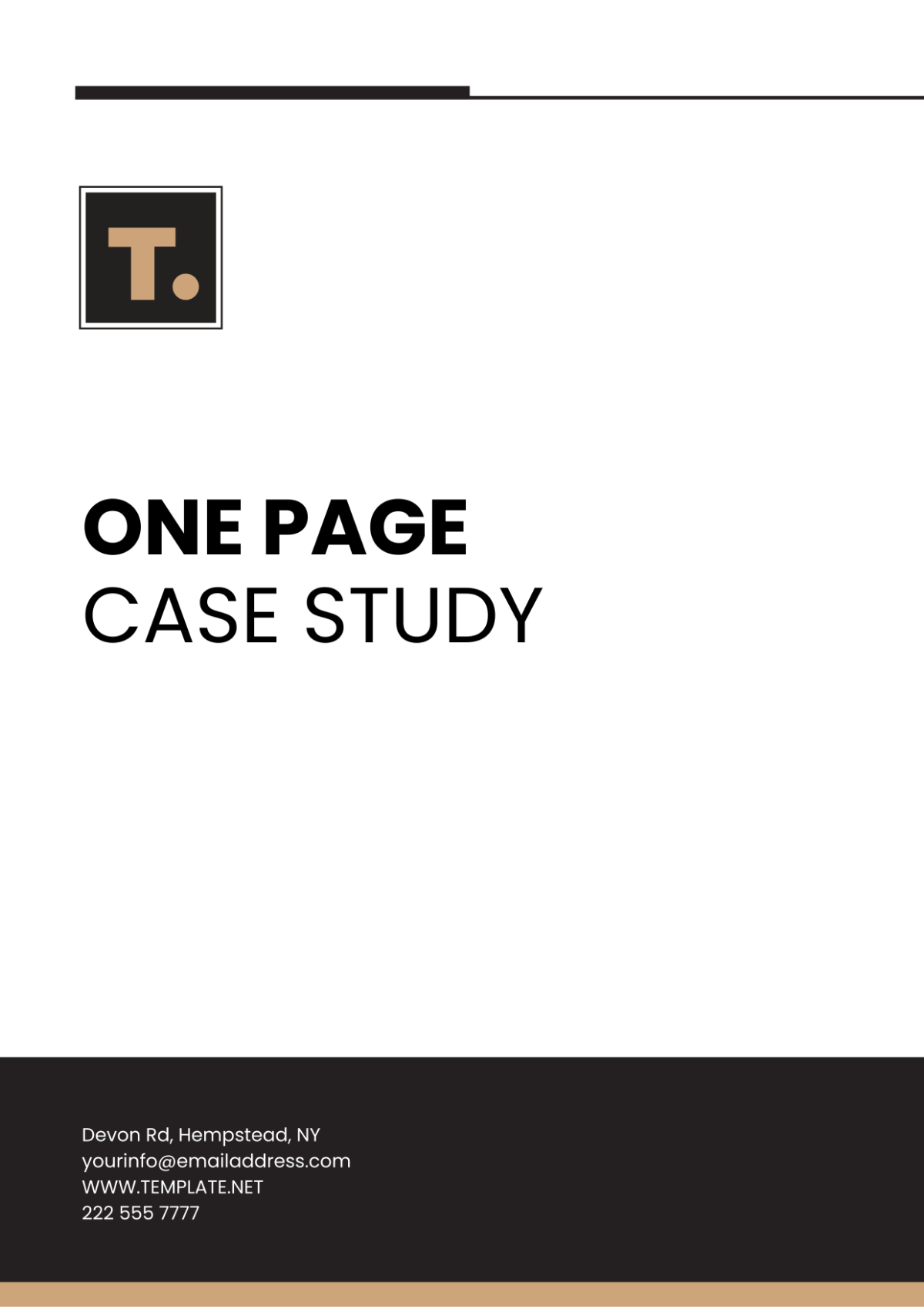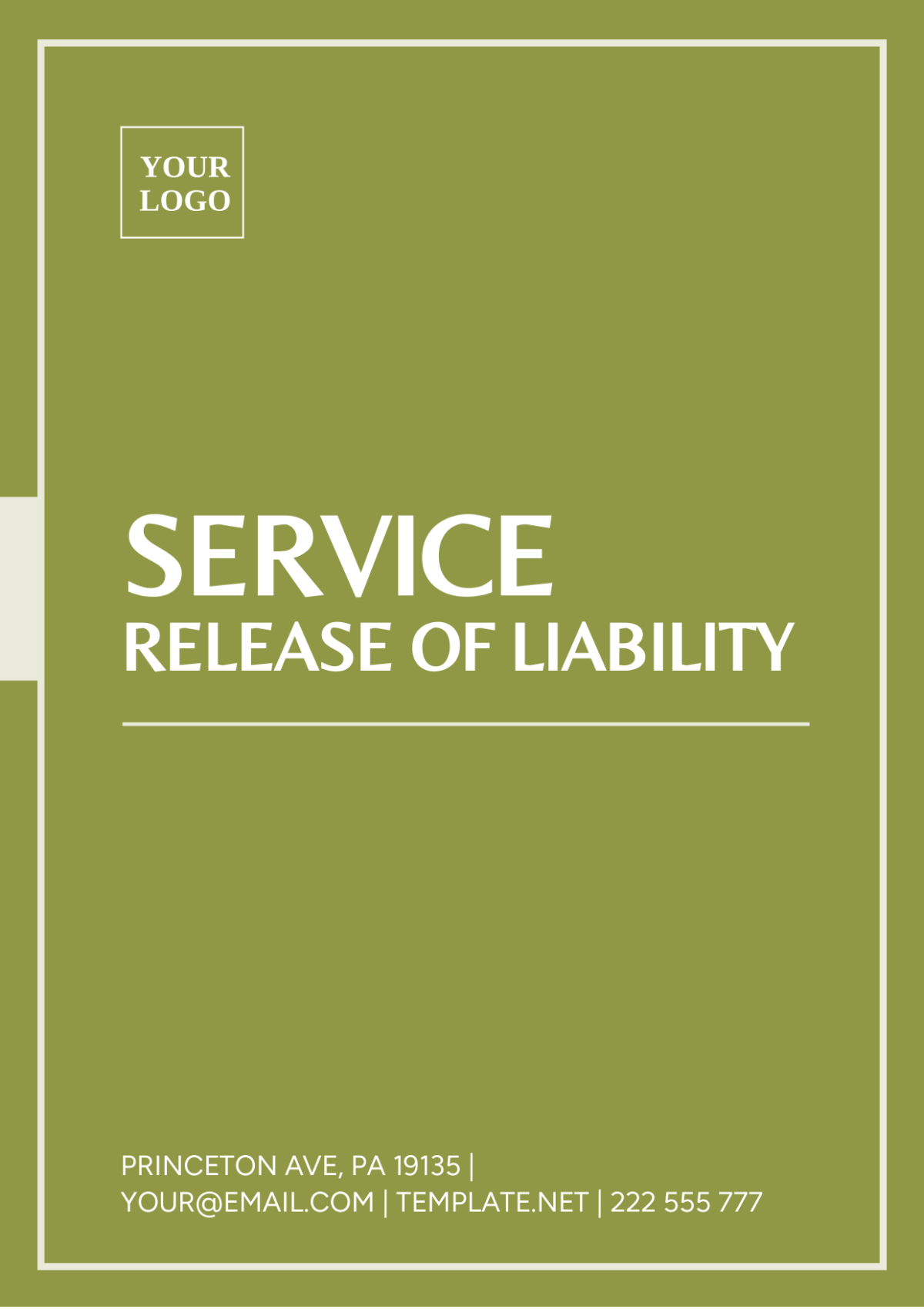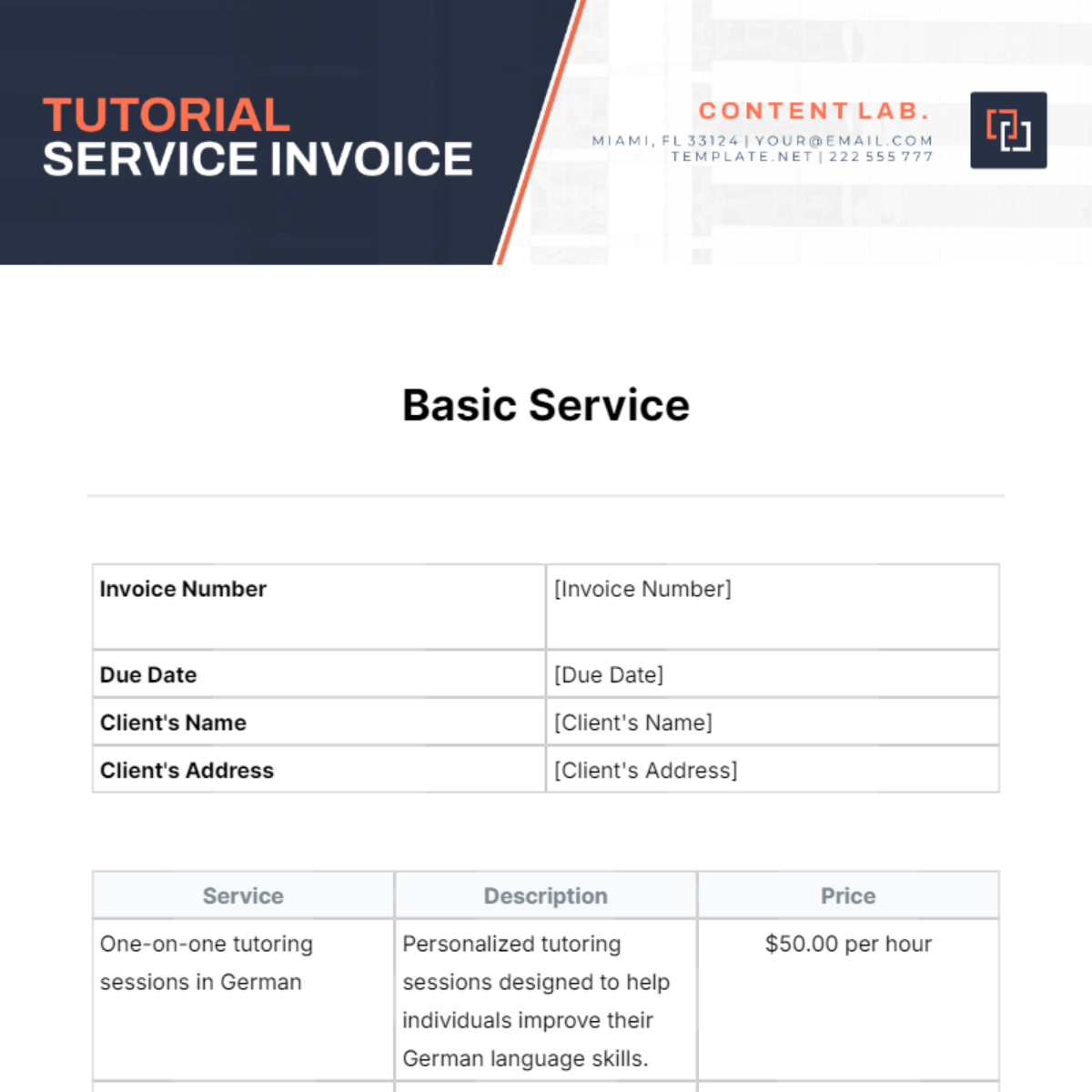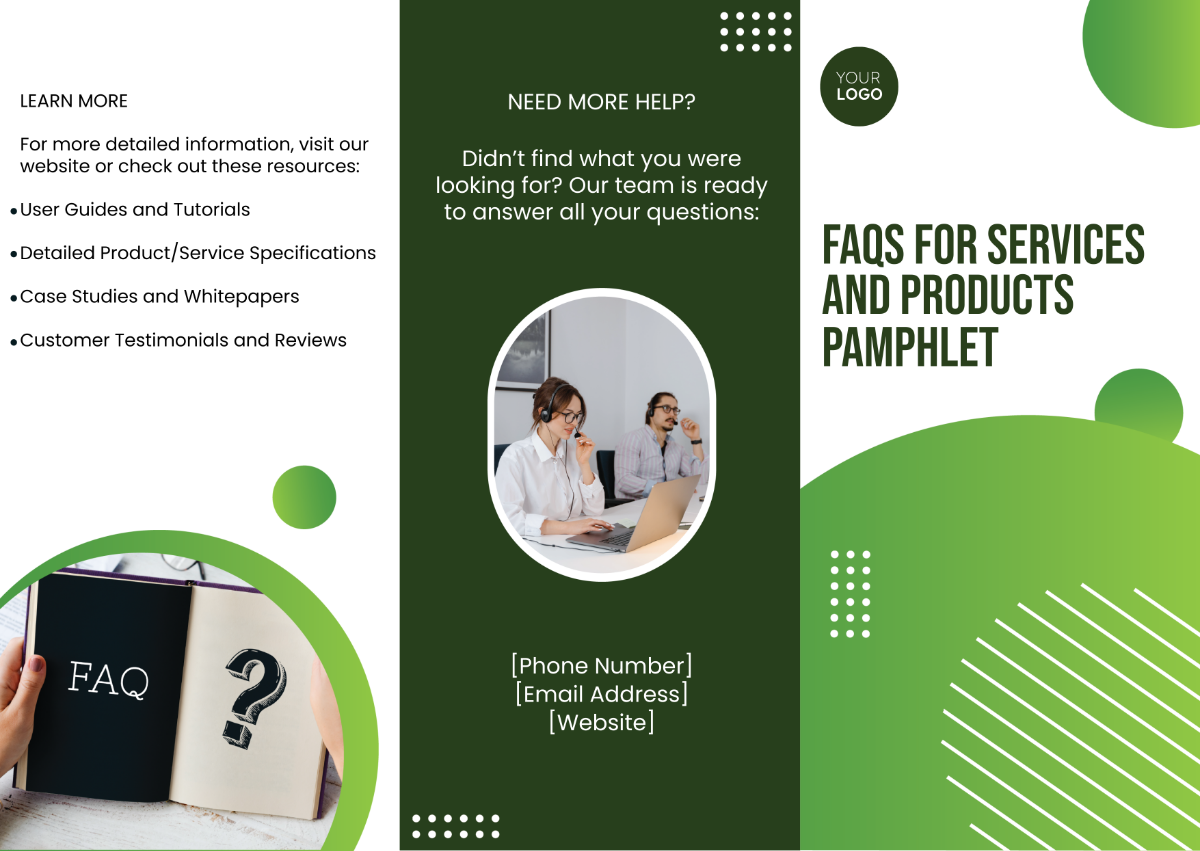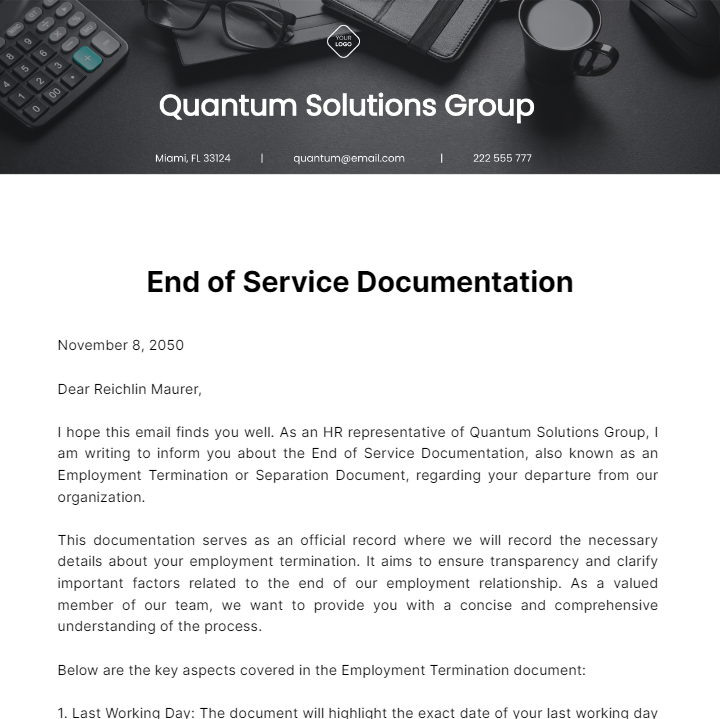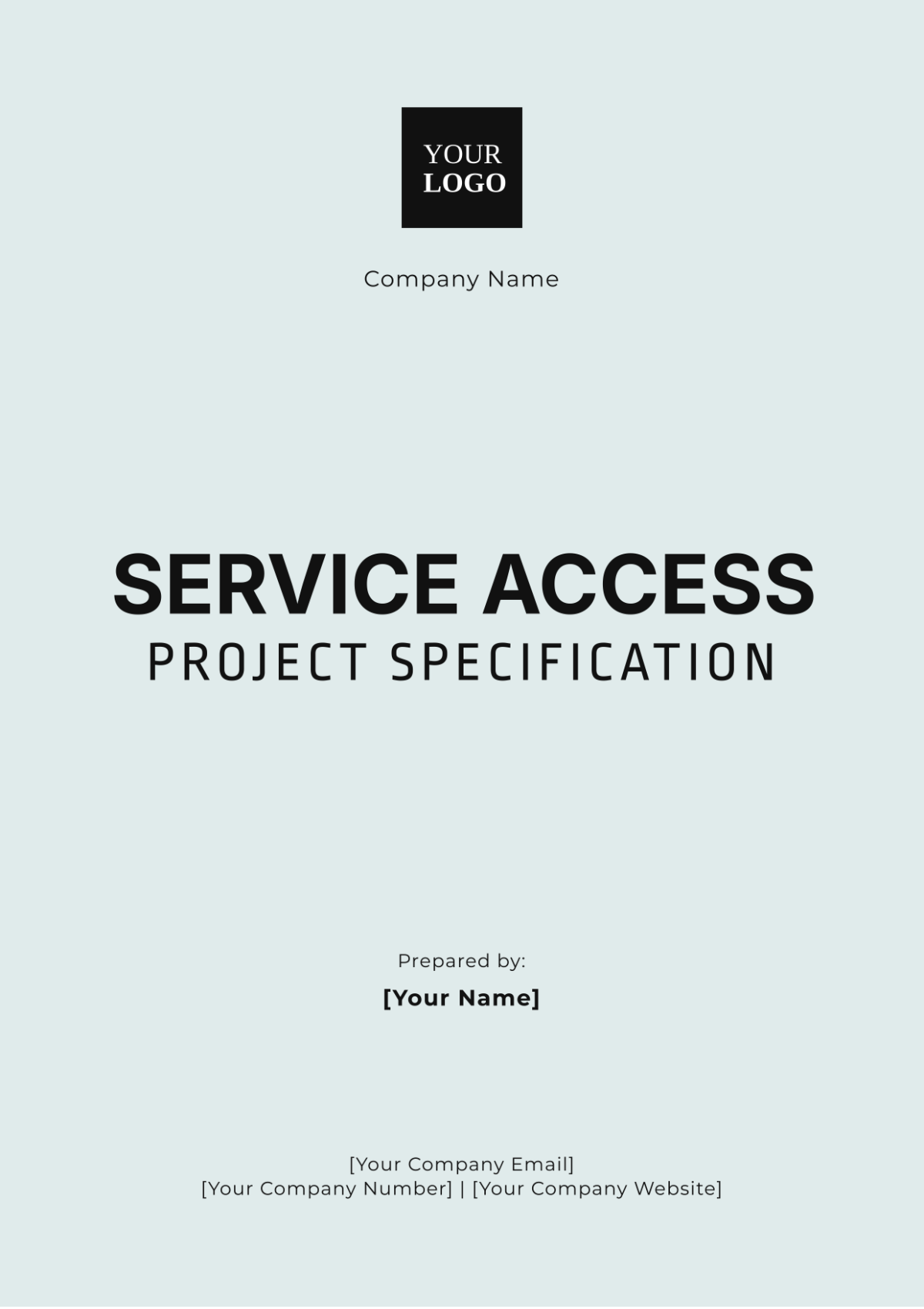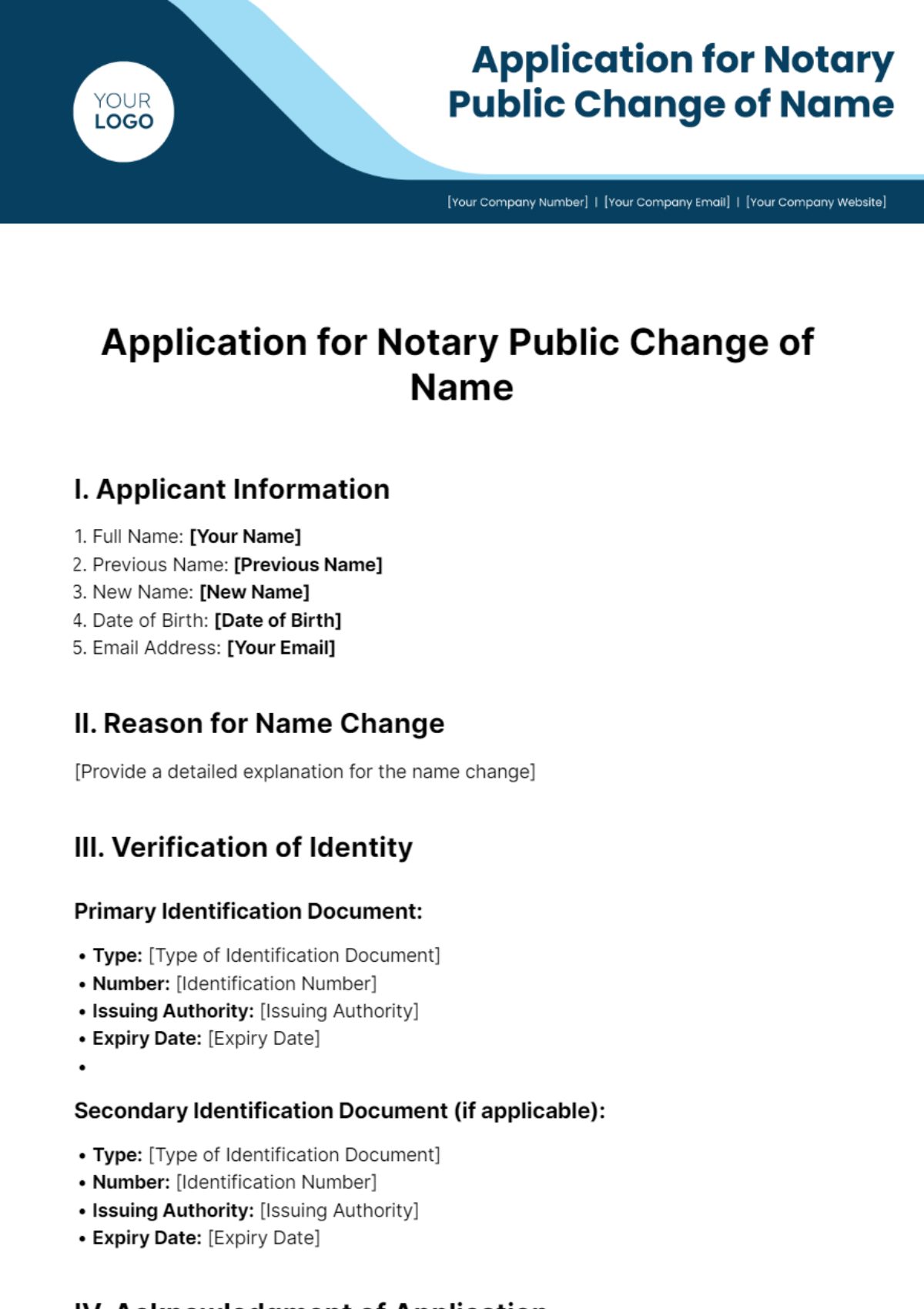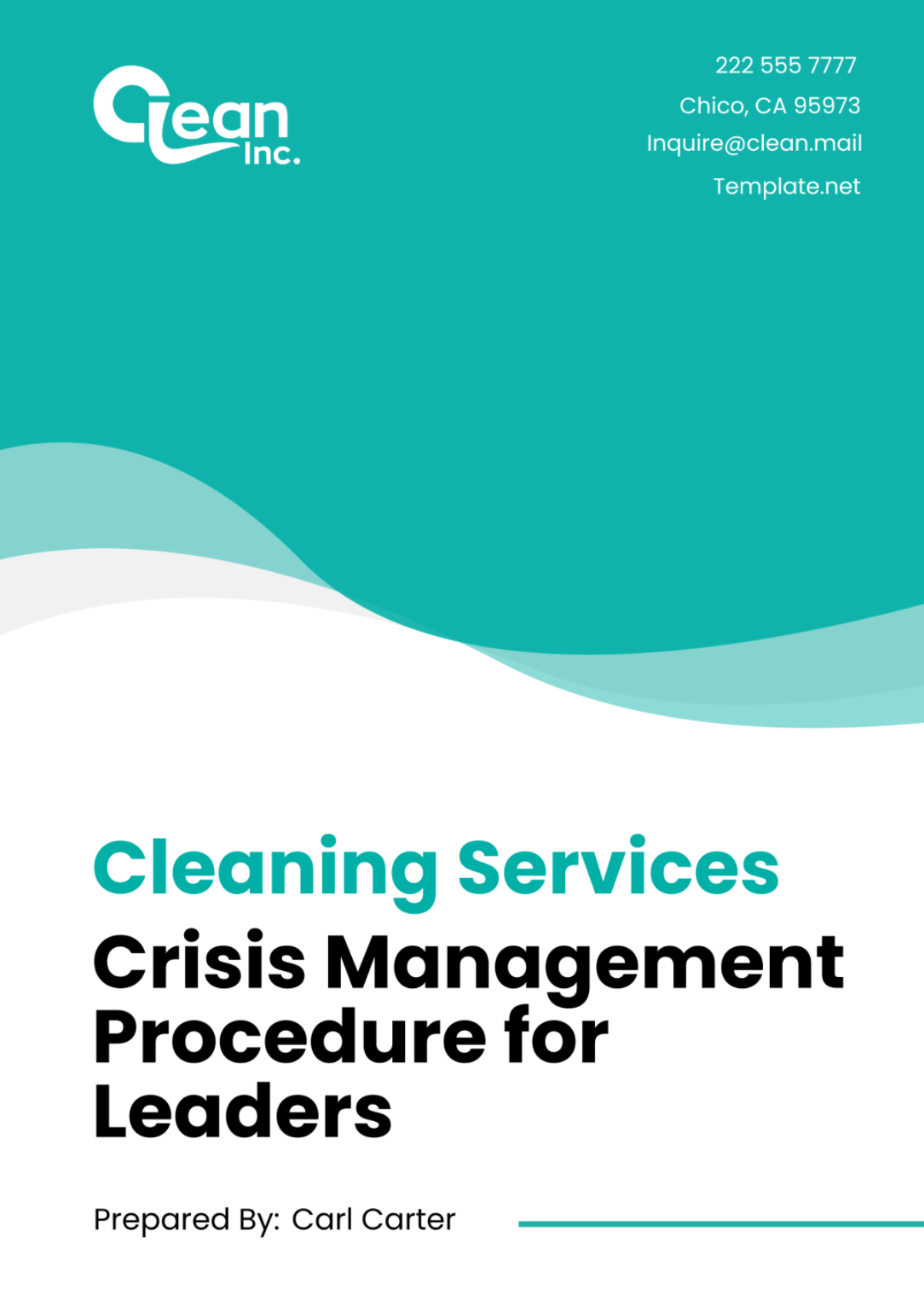Service Access Project Specification
1. Introduction
This document outlines the requirements, procedures, and protocols necessary for accessing specific services or infrastructure at [Your Company Name]. It serves as a comprehensive guide to ensure that access is granted and managed in a safe, compliant, and efficient manner. The specifications contained herein apply to all stakeholders requiring access to the services defined.
2. Scope
The scope of this specification includes:
Access requirements and eligibility
Procedures for requesting access
Roles and responsibilities
Access protocols and security measures
Compliance and audit controls
3. Requirements
3.1 Eligibility Criteria
Only personnel who demonstrate a legitimate need for access to the specified services will be granted permission. The eligibility criteria are as follows:
Verification of Identity and Credentials: All individuals requesting access must provide valid identification and credentials to confirm their identity and ensure they are authorized to request access.
Relevant Approvals from Designated Authorities: Access requests must be reviewed and approved by designated authorities within the organization who can verify the necessity and appropriateness of the access being requested.
Completion of Mandatory Training Sessions: Individuals must complete any required training or certification programs that are pertinent to the access level they are requesting. This training ensures they are aware of and can comply with relevant policies and procedures.
3.2 Access Levels
The following table illustrates the different access levels and associated permissions:
Access Level | Description | Permissions |
|---|---|---|
Level 1 | Basic Access | Read-only access to non-confidential data |
Level 2 | Intermediate Access | Read and write access to specific datasets |
Level 3 | Advanced Access | Admin privileges including data modification and user management |
4. Procedures
4.1 Requesting Access
To request access, follow these steps:
Complete the Official Access Request Form: Fill out the designated form with accurate and detailed information about your request and intended use.
Submit the Form to the Access Control Team: Send the completed form to the Access Control Team through the specified email address or online portal.
Await Confirmation and Further Instructions: Monitor your email or portal for confirmation of receipt and any additional instructions or requirements from the Access Control Team.
4.2 Approval Process
The approval process involves:
Initial Verification: The Access Control Team verifies the requestor’s identity and eligibility based on submitted documentation and criteria.
Review by Responsible Manager: The responsible manager reviews the access request to ensure it aligns with organizational needs and policies.
Final Approval: The Access Control Team makes the final decision on granting access, ensuring all criteria are met and approvals are in place.
4.3 Onboarding
Once access is approved, the onboarding process includes:
Assignment of Access Credentials: Provide the requestor with login credentials and any necessary access tokens or security keys.
Provision of Necessary Documentation and Resources: Supply the user with all relevant documentation, guides, and resources needed to perform their duties.
Orientation Session: Conduct an orientation session to introduce the user to access protocols, security measures, and any specific procedures they need to follow.
5. Roles and Responsibilities
5.1 Access Control Team
The Access Control Team is integral to the management and oversight of access requests. Their responsibilities include:
Evaluate and approve access requests based on eligibility and organizational needs. This involves verifying all submitted information and ensuring that all criteria are met.
Keep accurate records of all access granted, including the details of who has access to which resources and any changes to access levels.
Perform periodic reviews and audits of access logs and permissions to ensure adherence to security policies and identify any potential issues or discrepancies.
5.2 Requestor
The requestor plays a key role in ensuring that access is requested and used properly. Their responsibilities include:
that their request meets all specified criteria and is supported by necessary documentation and approvals.
Adhere to established protocols for accessing and handling data, including maintaining confidentiality and securing their credentials.
Promptly report any suspected security breaches, access issues, or anomalies to the Access Control Team to ensure timely resolution and mitigate potential risks.
6. Access Protocols and Security Measures
6.1 Authentication
All users must authenticate through a secure login system that utilizes multi-factor authentication (MFA). MFA requires users to provide two or more verification factors to confirm their identity, enhancing security beyond just passwords. Users must keep their credentials confidential and are strictly prohibited from sharing them with others.
6.2 Data Access and Handling
Users must follow these guidelines to ensure proper data management:
Access Only Necessary Data: Users should only access data that is essential for their specific roles and responsibilities, minimizing exposure to unnecessary information.
Ensure Data Integrity and Confidentiality: Protect the accuracy and confidentiality of the data by avoiding unauthorized modifications and ensuring that data is not disclosed to unauthorized parties.
Comply with Regulations and Policies: Adhere to all relevant data protection regulations and organizational policies, including those related to data privacy, security, and usage.
6.3 Monitoring and Auditing
To maintain security and compliance, the following practices are in place:
Regular Monitoring: Continuous monitoring of access activities to detect and respond to any suspicious or unauthorized behavior.
Periodic Audits: Routine audits of access logs and security measures conducted by the Access Control Team to ensure adherence to protocols and identify potential security risks.
Report Generation: Creation of detailed reports on access activities and audit findings to track compliance and support corrective actions.
7. Compliance and Audit Controls
To ensure adherence to security policies and procedures:
Regular Review of Permissions: Periodic assessments of access permissions and user credentials to ensure that access levels remain appropriate and aligned with current roles.
Periodic Security Training: Ongoing training sessions for all users to keep them informed about security best practices, policy updates, and new threats.
Corrective Actions: Implementation of corrective measures to address and rectify any identified instances of non-compliance or security breaches.
8. Conclusion
This Service Access Project Specification provides a detailed framework to manage access in a secure, efficient, and compliant manner. Adhering to the outlined requirements, procedures, and protocols will help safeguard the organization's infrastructure and data, ensuring operational integrity and security.

